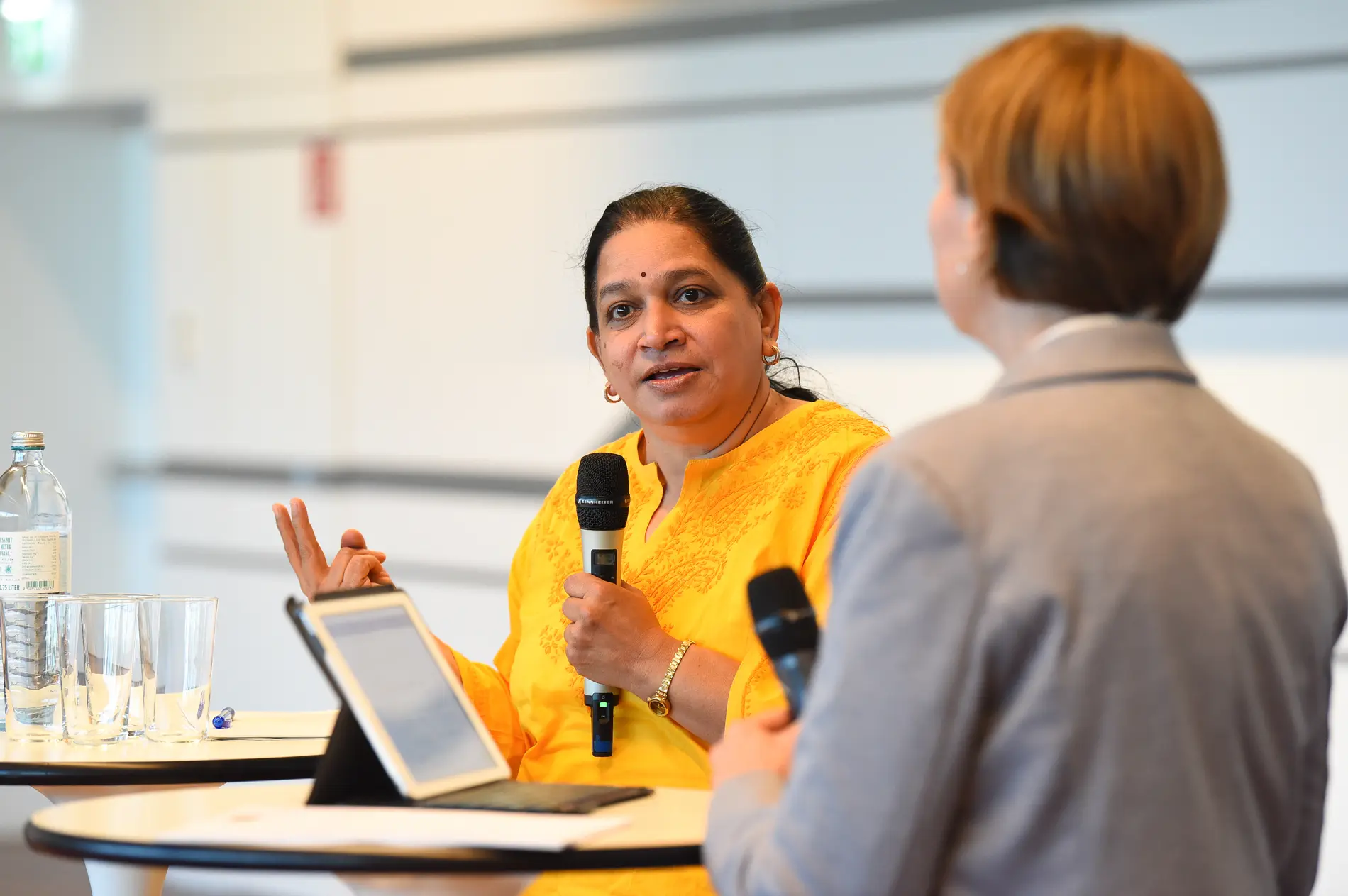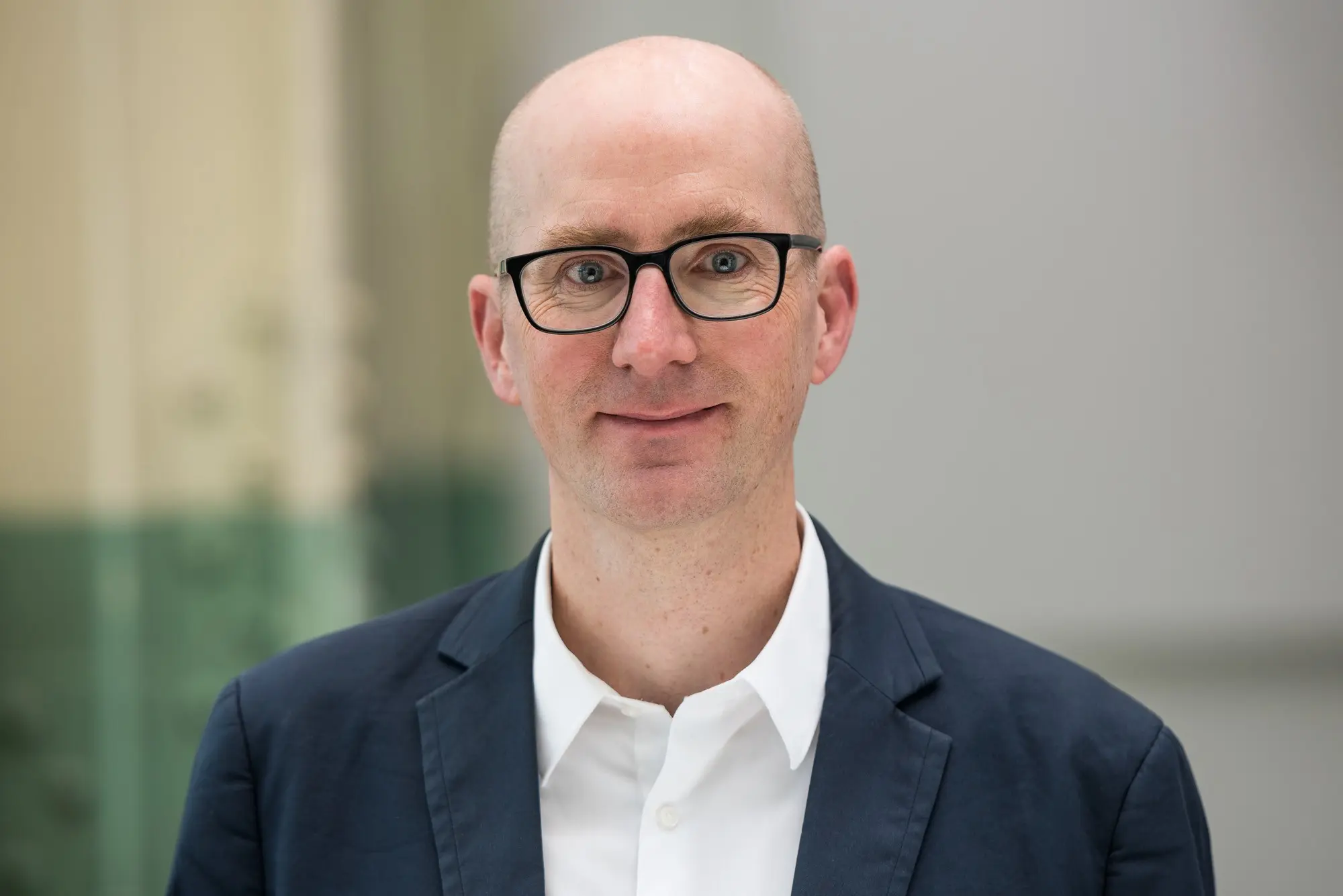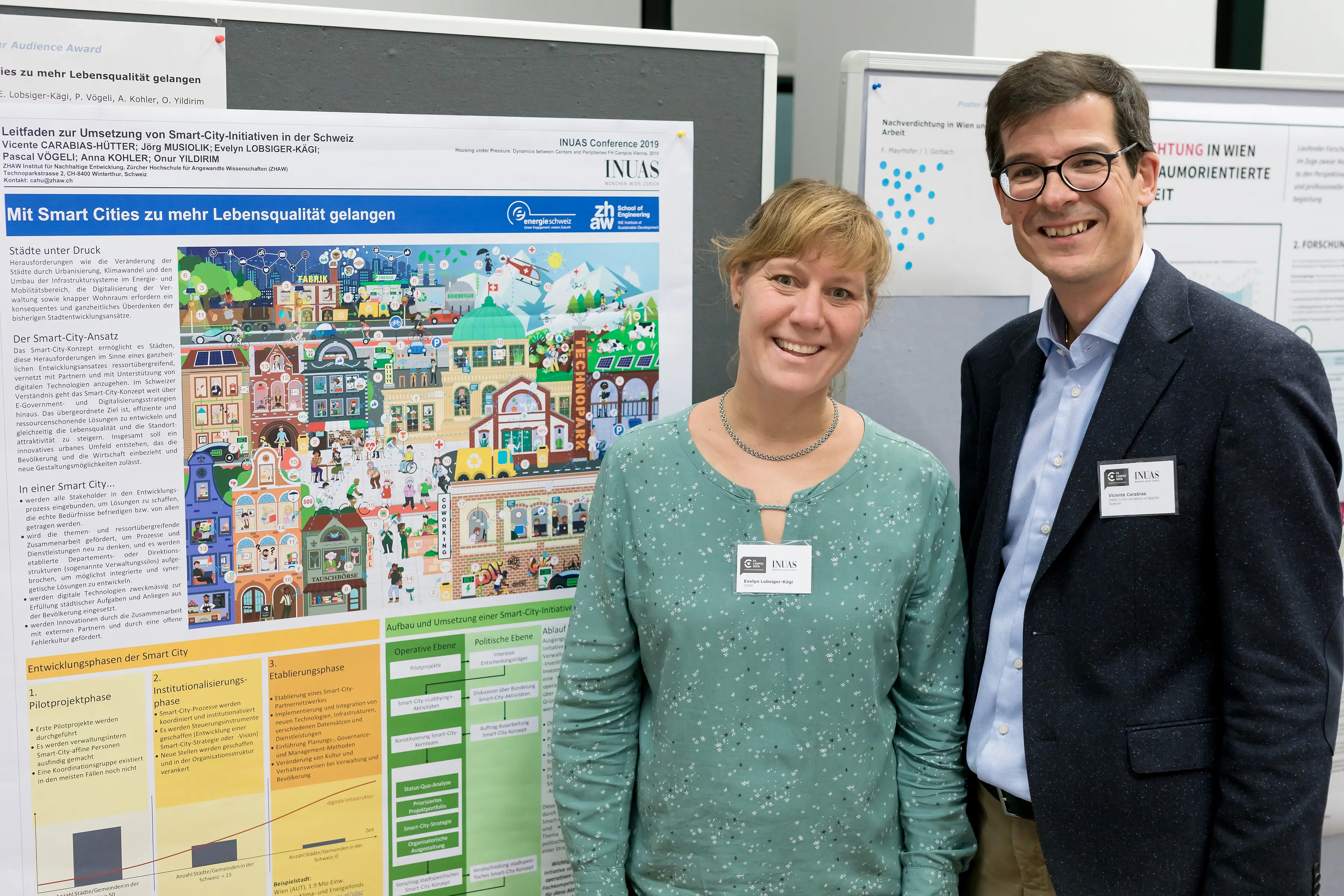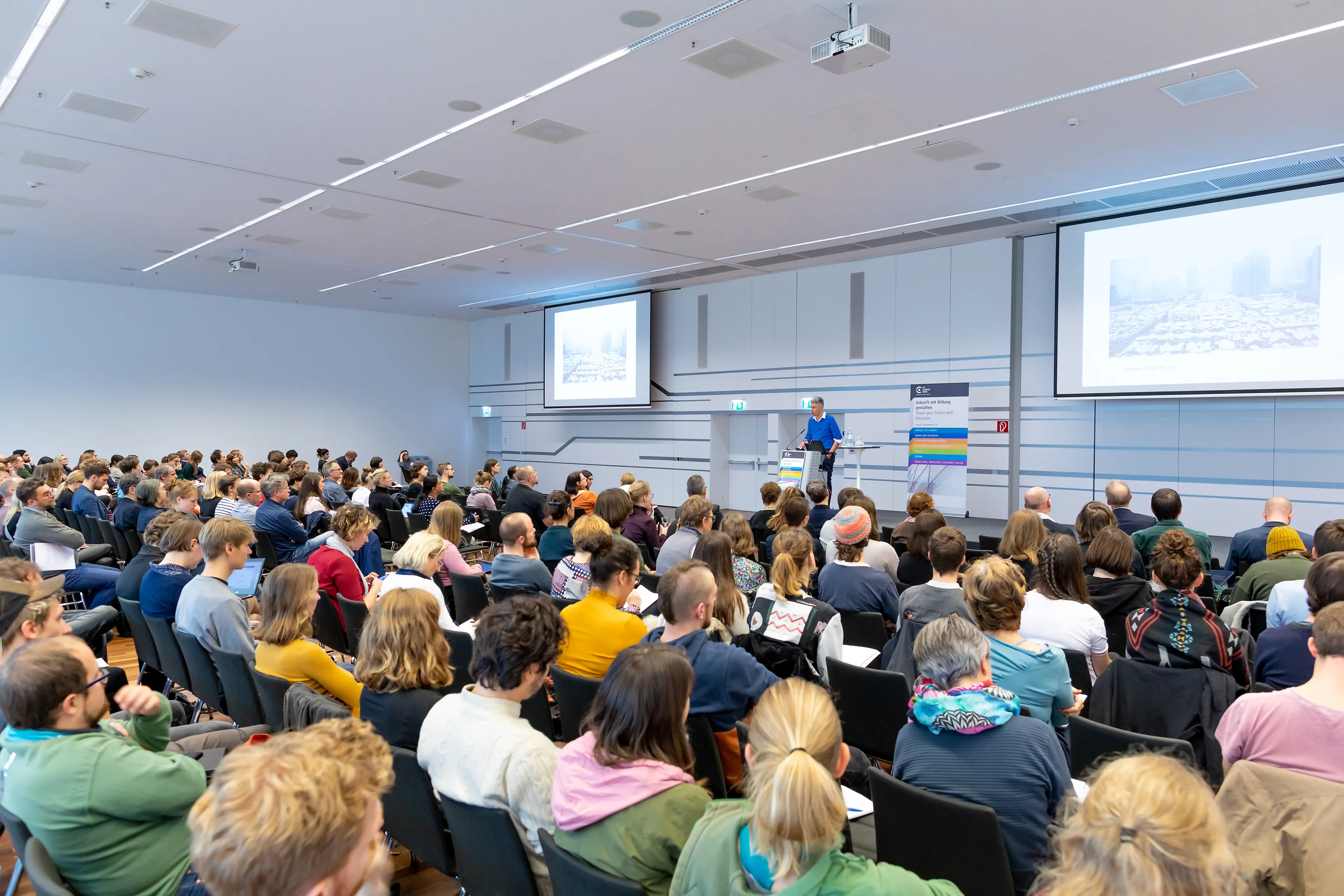INUAS Conference 2019: Housing under Pressure – the challenges in large cities
The theme of the INUAS Conference 2019 was "Housing under Pressure. Dynamics Between Centers and Peripheries". It focused on the challenges faced by large cities caught between a growing population, ever scarcer housing and sustainable development. Vicente Carabias-Hütter and Peter Jenni of the ZHAW participated in the development of the conference programme and acted as panel chairs.
The first INUAS (International Network of Universities of Applied Sciences) conference, which took place in Vienna from 4–6 November 2019 at the FH Campus Wien University of Applied Sciences, was attended by around 300 participants, including 90 students. The conference dealt with a diverse range of topics: strained urban housing markets, the resulting social tensions and displacement processes, as well as innovative approaches to social and affordable housing, sustainable urban development, smart cities and citizen participation by means of new digital possibilities.
“By broadly interpreting its overarching theme, the conference addressed a variety of disciplines and integrated different perspectives,” said Vicente Carabias-Hütter from the ZHAW School of Engineering. As a member of the scientific committee for the INUAS conference series Urban Transformations, under which the conference in Vienna took place, he helped shaping the programme for this conference. “It was important to us from the beginning that we treat the theme Housing under Pressure in an interdisciplinary – and transdisciplinary – way. Our goal is to also use the INUAS conferences to foster exchanges with on-the-ground practitioners and to present other applied contributions in addition to research projects,” Carabias-Hütter said.
Recognising the global dimensions
This was also one of the criteria used for selecting the conference papers out of around 155 submissions. “The excursions in and around Vienna, where projects could be seen in person, provided an additional reference to the real world.” In the end, a good mix was achieved – not only in terms of the conference programme but also in terms of the participants, Carabias-Hütter said. “Researchers were as well represented as municipal and societal actors and industry, such as planning offices.”
“The conference met our expectations with regard to its in-depth expertise and transdisciplinary nature,” said Peter Jenni from the ZHAW School of Architecture, Design and Civil Engineering. He, too, is on the scientific committee of the INUAS conference series. According to Jenni, another important component is the international diversity of the speakers. “Given the participation of the three INUAS universities – the FH Campus Wien University of Applied Sciences, the Munich University of Applied Sciences and the ZHAW Zurich University of Applied Sciences – the conference was by its very nature transnational. In addition, having speakers from a total of 20 different countries ultimately added perspectives that reach beyond the boundaries of Western metropolis.”
In her keynote speech, for example, Professor Amita Bhide of the Tata Institute of Social Sciences (TISS) in Mumbai discussed the utopias and realities of affordable housing for the poor urban population in India. Others dealt with projects in Egypt, Morocco and Turkey. According to Jenni, this diversity resulted in enriching discussions, making such an international exchange worthwhile. “When we only discuss these challenges within our relatively small country of Switzerland, we lose the bigger picture of global themes and overlook good problem-solving approaches from other countries.”
Exchange between academia and practice
In the end, the international and transdisciplinary exchange makes an important contribution to the academic discourse on the development of urban living spaces, added Jenni. In the 27 panels, each of which had a different main theme, some of the discussions involved similar projects, while others dealt with very different ideas. “Different approaches, methods and procedures once again serve as inspiration for one’s own work, revealing interconnections from which new research projects can emerge or showing the potential for further inter- and transdisciplinary collaboration,” Jenni said. As professional practitioners also took part in the conference, this means that innovations and new insights resulting from this exchange might also find their way directly into the implementation of individual projects.
An example of this is the FOGO urban project in Zurich-Altstetten, which offers affordable housing for young adults who are still studying or training, as well as refugees. “At one of the panel discussions, the Institute of Sustainable Development at the ZHAW presented the first findings from their case study, which is examining this neighbourhood with regard to integration and participation mechanisms,” said Carabias-Hütter. “Those in charge of this urban project also took part in the conference in order to learn about similar experiences from other cities and to take away new ideas. If this interaction can take place, then we have achieved our goal.” After all, universities have a social responsibility to not only undertake research on the important and pressing challenges posed by a growing urban population, but also to translate their knowledge into practice.
Resources is theme of 2020 conference
Both Jenni and Carabias-Hütter are convinced that the conference series can also contribute to raising the profile and the international reputation of INUAS. Case in point: INUAS attracted the attention of an international audience with its invitation and call for papers for its first conference. Looking to the future, Jenni says: “By continuing this conference series, INUAS will be able to more firmly establish itself as an expert network for a range of topics dealing with urban transformations and quality of life.”
Carabias-Hütter and Jenni consider displacement processes, which can be observed in large cities around the world, to be among the most pressing challenges that will have to be overcome in urban living spaces in the coming years. At the same time, there are environmental issues that concern resource-efficient construction and living, climate-friendly mobility and sustainable forms of energy production and consumption. And these all involve another topic of global importance: resources.
The INUAS Conference 2020 in Munich will take on the theme Resources in all its facets. As Jenni and Carabias-Hütter explain, the idea of the conference series is to alternate its location at one of the three INUAS universities and choose a new focus each time. In 2021, the INUAS conference in Zurich will deal with the theme Public Spaces.



